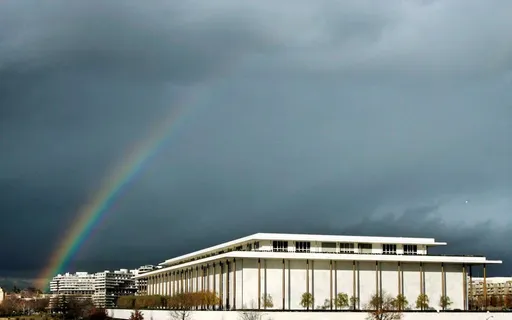The United Nations Security Council (UNSC) has convened an emergency meeting requested by Ukraine this week, in the hopes of preventing war and Russian assault. In his opening remarks, UN Secretary-General Antonio Guterres stated: "If indeed an operation is being prepared, I have only one thing to say from the bottom of my heart: President Putin, stop your troops from attacking Ukraine. Give peace a chance. Too many people have already died."
About an hour into the meeting, the secretary general's statements became moot – Russian president Vladimir Putin announced the start of an operation to "demilitarise" and "denazify" Ukraine.
Making the matter even more ironic – absurd even– was that the Council's rotating president this month is the Russian Ambassador Vassily Nebenzia. The Security Council meeting that should, in theory, have condemned Russian actions was headed by the very country that should have been condemned. Even though most Council members strongly supported the resolution, the meeting ended, as could be expected, without it passing.
Russia's announcement – and its timing – once again confirmed a key issue in the United Nations' structure. And while some are questioning whether Russia could or should lose its seat in the Security Council, this question misses the forest for the trees.
The reality is that the veto power system in the UNSC has evolved from a pragmatic move at the time of its establishment into a liability. Today, the veto system ensures that aggressive actions by powerful states go without punishment even though they are in clear violation of international law. The inability of the Security Council to operate properly also distorts discussions about international norms and law, peace, and security, and forces states to seek “self-help.”
Instead of insisting on an outdated United Nations mechanism, global attention should turn to updating the institution and preparing it for a multipolar international system.
Future focus
While the current debates focus on Ukraine and the Russian assault, the discussions also need to look forward. As the international system transitions from a unipolar to a multipolar system with great power competition in Asia, the future, it appears, will hold more wars, more unilateral military actions, and new conflicts. A multipolar world promises new forms of military escalation and unlawful annexations.
Today, the focus may be on Russia, but China is waiting next in line. The days when only the US invaded states in violation of international law have already ended. More and more states will pursue their self-interests by military means and try to assert their dominance.
In this context, the very ideas of international norms, a rules-based system, and international laws will be threatened. States who disregard them will attain some of their goals and states that respect these rules will be unable to support the victims of unlawful aggression.
When the situation in Ukraine reaches a resolution, the absurd conditions under which the UNSC meeting took place should be a trigger to develop UN reforms. Otherwise, the very existence or independence of many other smaller states will be under threat.
In such a scenario, states like Finland, Taiwan, Moldova, and many other states in Central Asia and Southeast Asia will be forced to knock under or pursue their interests by bandwagoning with revisionist states. They may also try to secure themselves through forming alliances or attaining nuclear capacity. For instance, a non-NATO country may seriously consider joining the alliance, provoking Russia and creating a new conflict. On the other side of the continent, Asian states may try to attain nuclear weapons, like Iran and North Korea have been doing.
Once states think their survival depends on it, they may engage in such activities that make our world more insecure. The inability of the United Nations to serve its purpose will facilitate this new trend.
To be fair, even if the United Nations was not systematically blockaded, the new era in the international system would create an environment in which survival and self-help would be high on the states’ agendas. However, the United Nations should be able to ease these risks and reduce the security threat perception.
New solutions
With the Russian incursion into Ukraine, many questioned the effectiveness of the United Nations. As new challenges require reforms to old institutions, Türkiye's President Recep Tayyip Erdogan's "The World is Bigger than five" mantra has become more relevant today.
The proposals of the Turkish President to reform the United Nations have to be seriously considered, and the leaders of the world need to use them as a basis for negotiations to discuss reforms in the United Nations.
Reforms in the United Nations will be in the interest of all. Even revisionist states that want to abandon or change international norms would benefit from a properly functioning United Nations as they, too, need security. Legitimate security interests and conflicts could be resolved in the United Nations without the need for costly wars, for instance.
The genuine probability that the United Nations might be able to produce actual results and make decisions serving peace in the international system means it is worth trying and pushing for reforms. The possibilities otherwise are ominous indeed.
























